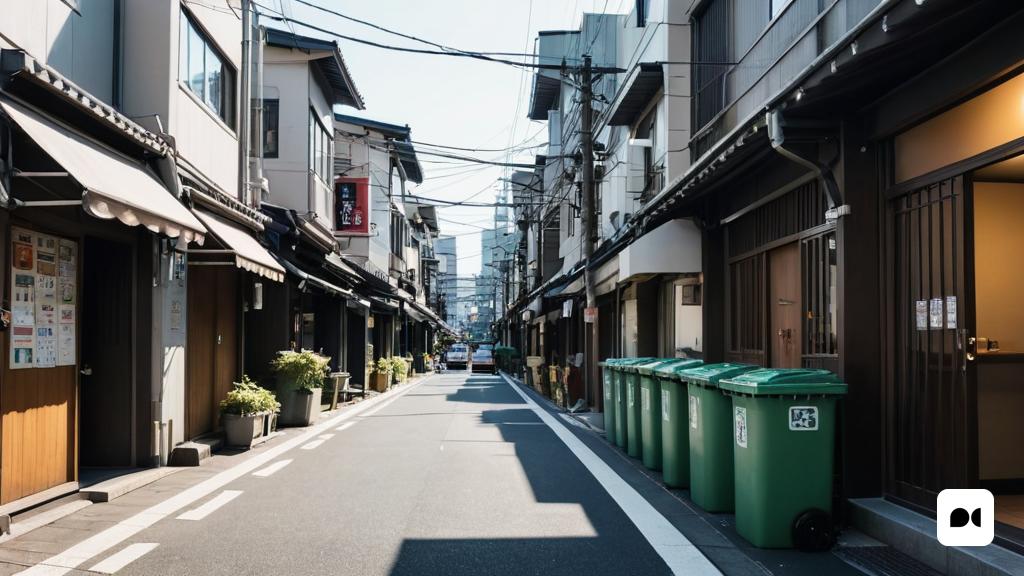A walk through the Japanese streets
Walking through any Japanese city is an experience full of visual and sensory stimuli. From the abundance of restaurants to convenience stores where you can find almost everything, from instant noodles that you can prepare to order to iced coffee accompanied by green tea cookies. However, there is something that is quite difficult to find: trash cans or garbage containers.
An urban cleaning paradox
Even in Tokyo, Japan’s bustling capital, finding a trash bin on the street can seem like an impossible task. Despite their absence, the streets remain incredibly clean and free of waste. Recycling rules in Japan are extremely strict and each type of waste has its own specific collection day. It is strictly forbidden to take out trash on unspecified days, which contributes significantly to urban cleanliness.
The origin of the absence of litter bins
The lack of litter bins is not a new phenomenon and has a historical reason. It is due to a tragic incident: the sarin gas attack on the Tokyo subway on March 20, 1995. This attack, carried out by the Aum Shinrikyo sect, injured more than 5,000 people. The gas, odorless and colorless, went unnoticed until the victims began to show symptoms. This event caused a great impact on Japanese society and led to the withdrawal of many paper mills to avoid future similar attacks.
Adaptations in metro stations
Despite the time that has passed since the attack, security measures remain strict in the Tokyo subway system. Although it is difficult to find trash cans in the city, some are strategically located near the ticket vending machines at certain subway stations.
The culture of cleanliness in Japan
It is surprising to see the cleanliness of the streets in a country where public bins are scarce. A BBC article points out that the answer to this enigma lies with the citizens themselves. People in Japan have a strong awareness of cleanliness from an early age. In schools, it is common for students to participate in cleaning up the environment, a tradition that also extends to sporting events, where fans clean the stadiums after matches, as seen at the 2014 World Cup in Brazil and 2018 in Russia.
Tradition and discipline
In addition to social awareness about hygiene and health, the tradition of Zen Buddhism also plays an important role in Japan’s cleanliness culture. This spiritual approach considers good hygiene to be essential for healthy living, and this mantra has been deeply integrated into the daily lives of Japanese people.
Conclusion
Japan’s impressive street cleanliness, despite the absence of litter bins, is the result of a combination of strict recycling rules, reinforced safety measures and a deeply ingrained culture of social responsibility and personal discipline. In simple words, cleanliness in Japan is not just a regulation, but a respected tradition.




